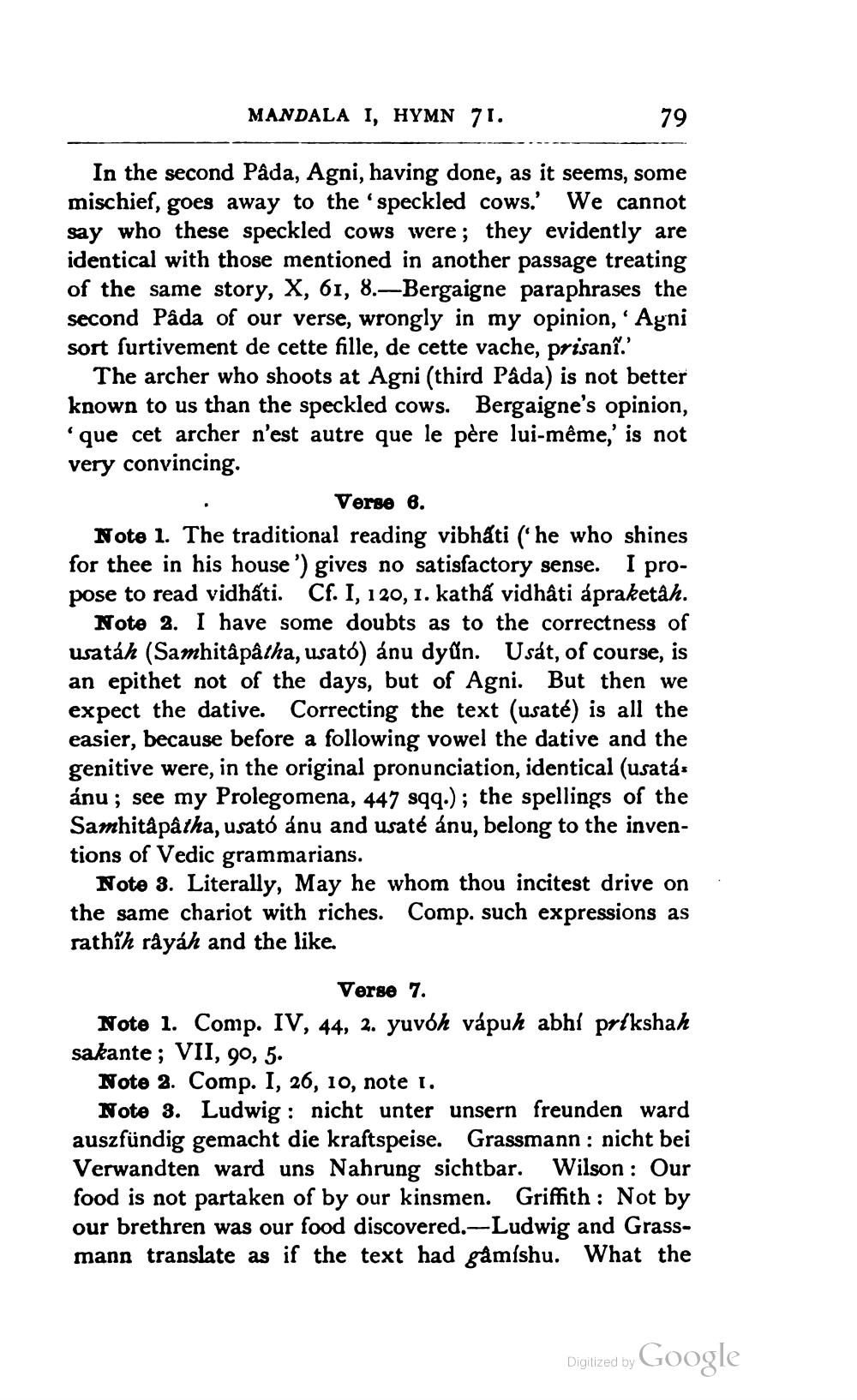________________
MANDALA I, HYMN 71.
79
In the second Pâda, Agni, having done, as it seems, some mischief, goes away to the 'speckled cows.' We cannot say who these speckled cows were; they evidently are identical with those mentioned in another passage treating of the same story, X, 61, 8.-Bergaigne paraphrases the second Pâda of our verse, wrongly in my opinion, ' Agni sort furtivement de cette fille, de cette vache, prisanî.'
The archer who shoots at Agni (third Pâda) is not better known to us than the speckled cows. Bergaigne's opinion, 'que cet archer n'est autre que le père lui-même,' is not very convincing.
Verse 6.
Note 1. The traditional reading vibhati ('he who shines for thee in his house') gives no satisfactory sense. I propose to read vidhati. Cf. I, 120, 1. katha vidhâti ápraketâh.
Note 2. I have some doubts as to the correctness of usaták (Samhitâpâtha, usató) ánu dyan. Usát, of course, is an epithet not of the days, but of Agni. But then we expect the dative. Correcting the text (usaté) is all the easier, because before a following vowel the dative and the genitive were, in the original pronunciation, identical (usatás ánu; see my Prolegomena, 447 sqq.); the spellings of the Samhitapâtha, usató ánu and usaté ánu, belong to the inventions of Vedic grammarians.
Note 3. Literally, May he whom thou incitest drive on the same chariot with riches. Comp. such expressions as rathîh râyáh and the like.
Verse 7.
Note 1. Comp. IV, 44, 2. yuvók vápuh abhí príkshah sakante; VII, 90, 5.
Note 2. Comp. I, 26, 10, note I.
:
Note 3. Ludwig nicht unter unsern freunden ward auszfündig gemacht die kraftspeise. Grassmann: nicht bei Verwandten ward uns Nahrung sichtbar. Wilson: Our food is not partaken of by our kinsmen. Griffith: Not by our brethren was our food discovered.-Ludwig and Grassmann translate as if the text had gâmíshu. What the
Digitized by Google




